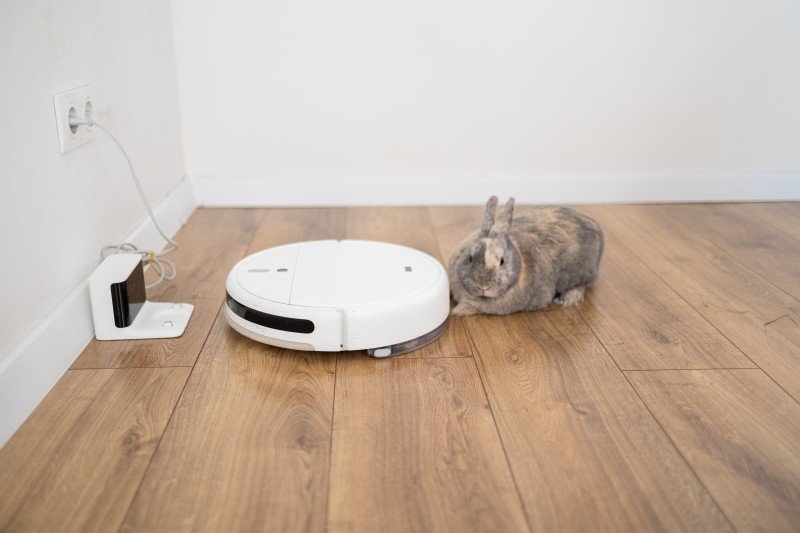Robot Vacuum Cleaners: The Future of Home Cleaning
In today's busy world, where time typically comes at a premium, robot vacuum have become a game-changer in family maintenance. Developed to automate the tiresome task of vacuuming, these appliances continue to get popularity amongst homeowners seeking benefit and effectiveness. This article dives into the numerous elements of robot vacuum cleaners, highlighting their features, advantages, and the factors to consider before buying one.
What is a Robot Vacuum Cleaner?
Robot vacuum are autonomous gadgets that navigate throughout the home, using sensing units and navigation innovations to tidy floors while reducing human intervention. Unlike traditional vacuum cleaners, robot vacuums are designed to run individually, going back to their charging station when they require to dock and recharge. The integration of smart technology also permits these gadgets to be controlled through mobile phone applications or clever home systems.
Features of Robot Vacuum Cleaners
The abilities of robot vacuum cleaners have actually broadened substantially throughout the years. Here are some common features found in modern-day models:
- Suction Power: Varies amongst models, with some delivering high suction for deep cleaning carpets.
- Navigation Technology:
- Lidar (Light Detection and Ranging)
- Camera-based navigation
- Gyroscope sensors
- Smart Home Integration: Compatible with virtual assistants like Amazon Alexa and Google Assistant.
- Arranged Cleaning: Allows users to set particular times for the vacuum to run autonomously.
- Self-Emptying Dust Bins: Some models include a base that automatically clears the gadget's dustbin.
- Multi-Surface Capability: Suitable for both carpets and difficult floors.
- Anti-Tangle Design: Brushes that decrease contending hair or strings.
- Virtual Boundaries: Users can set barriers so that the robot avoids specific areas or rooms.
Benefits of Using Robot Vacuum Cleaners
The appeal of robot vacuum can be credited to a number of crucial benefits:
- Time-Saving: Automating the vacuuming process frees up important time.
- Effective Cleaning: Many robot vacuums can reach under furnishings where standard vacuums may struggle.
- Consistency: Robot vacuums can be configured to clean frequently, guaranteeing that areas are preserved without much effort.
- Smart Features: The capability to arrange cleansings or control the device through an app enhances user convenience.
- Adaptability: Most models are capable of changing cleaning techniques based upon the surface area type.
Considerations When Choosing a Robot Vacuum Cleaner
Despite their many advantages, potential purchasers ought to think about several aspects to guarantee they choose the ideal robot vacuum for their needs:
- Home Size and Layout: Larger homes might require models with effective batteries and advanced navigation.
- Type of Flooring: Some designs carry out much better on carpets, while others stand out on difficult floorings.
- Animals: Homeowners with pets must search for designs developed to handle family pet hair and dander.
- Budget: Robot vacuums vary extensively in price, from spending plan designs to high-end devices with innovative features.
- Maintenance: Consider the cost of replacing filters and brushes, and the ease of cleaning the device itself.
- Sound Level: Some models run silently while others can be disruptive throughout cleaning cycles.
Popular Robot Vacuum Models
To aid possible buyers, the following table details some popular robot vacuum models together with their crucial features and cost ranges:
| Model | Suction Power | Navigation Type | Smart Home Compatible | Average Price |
|---|---|---|---|---|
| iRobot Roomba i7+ | High | Lidar + Camera | Yes | ₤ 799 |
| Roborock S7 | Moderate | Lidar | Yes | ₤ 649 |
| Neato D7 Overview | High | Laser Navigation | Yes | ₤ 649 |
| Eufy RoboVac 11S | Moderate | Basic Sensors | No | ₤ 239 |
| Shark IQ Robot | Moderate | Cam + Sensors | Yes | ₤ 499 |
Often Asked Questions (FAQs)
1. Can robot vacuum cleaners clean all types of surface areas?Yes, a lot of modern-day robot vacuum cleaners are designed to work on a variety of surfaces, consisting of carpets, tile, and wood floors. Nevertheless, it is advisable to inspect the specifications of specific designs as some might be better fit for particular surface areas.
2. How long does a robot vacuum operate on a single charge?The battery life of robot vacuum varies by model, generally lasting anywhere from 60 to 120 minutes. Bigger homes with more square video footage may need models with extended battery life.
3. Do robot vacuum need a lot of maintenance?Maintenance requirements depend upon the design, but the majority of need occasional emptying of the dustbin, cleaning of brushes, and replacement of filters. Some designs include self-emptying bases that decrease upkeep.
4. Are robot vacuums effective at picking up animal hair?Many robot vacuums include specialized brushes and powerful suction created specifically for family pet hair. Those particularly suited for pet owners can effectively handle hair and dander.
5. Can robot vacuum cleaners map my home?Many advanced models come geared up with mapping innovation, permitting them to produce a design of your home for more effective cleaning. talks about it can likewise enable users to set virtual borders.
As innovation continues to progress, robot vacuum cleaners are expected to end up being even more sophisticated, offering improved cleaning abilities and clever functions. They act as valuable tools for anyone wanting to keep a clean home with minimal effort. By understanding the different features, advantages, and factors to consider connected with choosing a robot vacuum cleaner, consumers can make educated decisions to find the very best suitable for their cleaning needs. Embracing this innovation not just streamlines family chores however also leads the way for a cleaner, more arranged living area.

